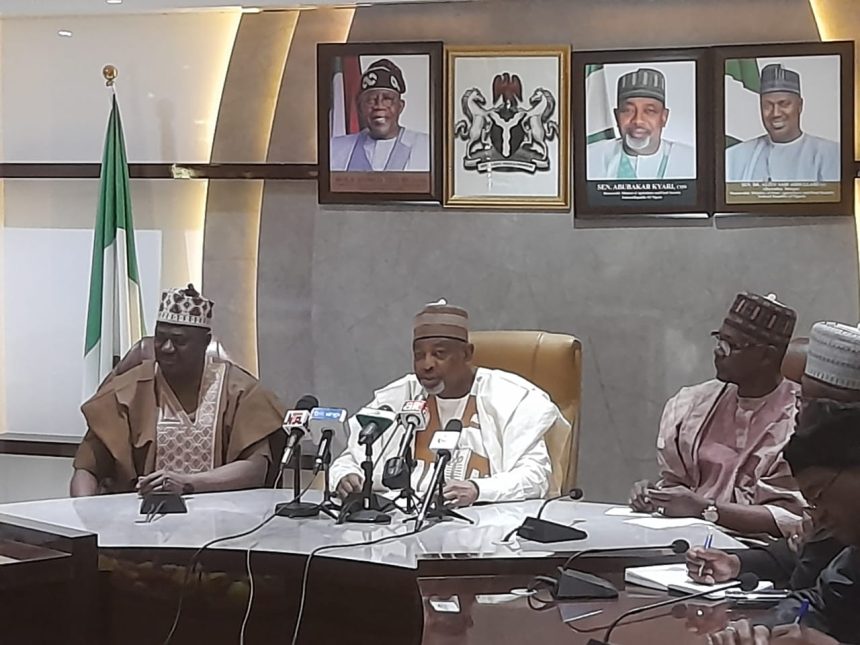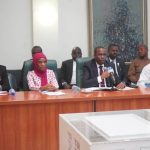The Federal Government has announced that it would soon begin the second phase of dry season farming in all the States of the Federation, including the Federal Capital Territory, Abuja.
Senator Abubakar Kyari, Minister of Agriculture and Food Security, announced this when the Governor of Nasarawa State, Engr. Abdullahi Sule, paid a courtesy visit to the headquarters of the Federal Ministry of Agriculture and Food Security in Abuja.
Kyari assured that the second phase of the dry season farming would take-off soon, adding that the States are expected to participate in the production of maize, rice, and cassava on “properly identified irrigable farmlands cultivated by genuine farmers, who will benefit from the Federal Government’s subsidised certified quality seeds and agro-inputs, such as fertilizers, micro-nutrients, herbicides, and pesticides.”
It would be recalled that the Federal Government through the Federal Ministry of Agriculture and Food Security in November 2023, under the National Agricultural Growth Scheme Agro-Pocket (NAGS-AP) project, launched the first phase of the Dry Season Farming with particular focus on 15 wheat-producing States of the Federation.
The minister revealed that following a painstaking stakeholders’ evaluation of the first phase of the Dry Season Farming, and with the goal of achieving a higher index of success in the second phase, that the Implementation Guidelines for the second phase have been modified.
The guidelines, according to him, include
the establishment of a NAGS-AP State Working Committee to be chaired by the Executive Governor or his representative, and the Committee shall consist of the following members: Commissioner for Agriculture – Vice Chairman;
“Commissioner for Local Governments and Chieftaincy Affairs or his representative;
The State Coordinator of Federal Ministry of Agriculture and Food Security – Member/Secretary; NAGS-AP State Focal Point person; All Farmers Association of Nigeria(AFAN); Representative of Traditional Rulers, among others.”
He therefore, expressed optimism that
Nasarawa State would have little difficulty in fitting into the readiness criteria for participation in the Dry Season Farming.
According to him, “The State is notable for grains, legumes, and root crop cultivation, and some of the country’s bigger rice millers are located in the state.
“The dam in the Doma area is also, I believe, a ready source of water supply during the dry season.”
Kyari pointed out that the synergy between the tiers of government would more readily bring positive outcomes in the nation’s quest to achieve food security.
Also speaking, the Governor of Nasarawa State, Engr.Abdullahi Sule, described Nasarawa as an “agrarian state.”
Sule said Nasarawa State is number one in the production of sesame, and number two in cassava and yam production as well as number five in rice production in the country.
The Governor assured that the State would work assiduously to occupy number one position in all of these commodities.
He noted that the State has been providing farm inputs to smallholder farmers, adding that his administration would double the gesture to boost agricultural productivity.
Commenting on the high cost of food items in the country, Sule blamed the nefarious activities of middlemen who hoard food items in various places.
He disclosed that a committee would be set up to ensure that middlemen do not hoard food items with the intention of creating scarcity and hiking the prices of these food items.











